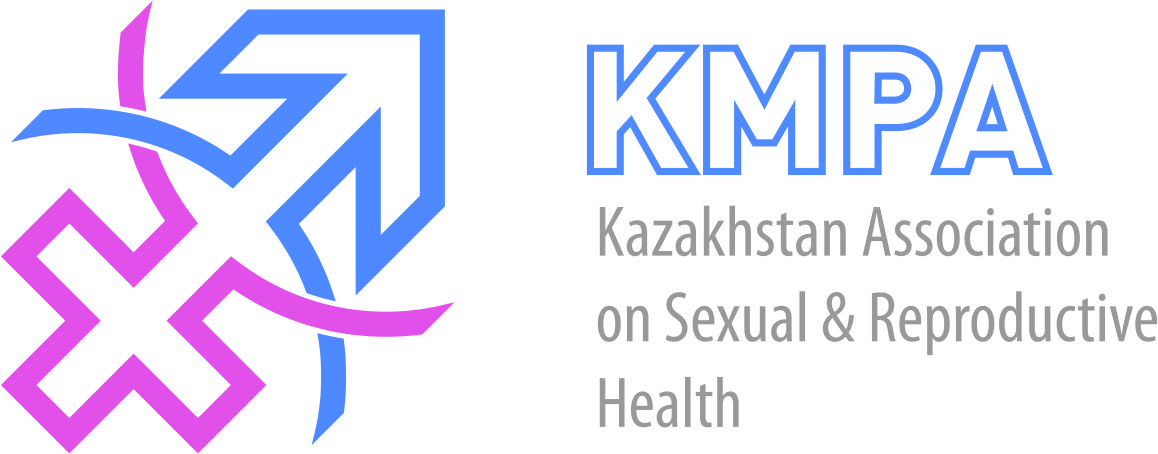

| 31 March 2016
Kazakhstan Association on Sexual and Reproductive Health (KMPA)
The Kazakhstan Association for Sexual and Reproductive Health (KMPA) was established in 1996. In 2002 KMPA became a full Member Association of IPPF. The organization currently has 9 branches and 4 regional offices in Almaty, Kostanay, Shymkent and Nur-Sultan. In total, there are 13 branches of KMPA. The organization’s activity is based on protecting the right of youth, men, and women to quality medical services and information in the field of sexual and reproductive health (SRH). KMPA conducts training of youth to prevent underage pregnancy, sexual and gender-based violence (SGBV), and the spread of sexually transmitted infections (STIs), including HIV. In addition, KMPA implements projects on family planning and promoting contraceptive methods to prevent unintended pregnancies. KMPA focuses on the following goals: (1) advocacy of sexual and reproductive rights; (2) elimination of unsafe abortion; (3) promoting condom use to prevent HIV/AIDS and decreasing stigma against people living with HIV/AIDS; (4) educating youth and teenagers on sexual and reproductive health and rights (SRHR) to allow choice and safe relations; (5) advocating for access to SRH services; (6) training healthcare professionals on family planning, contraception, safe abortion, antenatal care and consultation skills; and (7) training of teachers on SRHR, CSE, prevention of SGBV and promoting gender equality. KMPA seeks to improve the reproductive health of the population of Kazakhstan, especially the socially vulnerable, the poor, and young people, by protecting the basic reproductive rights of women, men, and young people, ensuring free and informed choices regarding SRH, providing comprehensive sexual education and high-quality information, and promoting access to SRH services. KMPA bases its activities on the principles of gender equality, freedom of decision-making and voluntary participation.

| 31 March 2016
Cameroon National Association for Family Welfare
The Cameroon National Association for Family Welfare (CAMNAFAW) was created in 1987 to respond to the needs of women who wanted to plan their families and to enjoy higher standards of living. The organization has rapidly grown into the country’s leading provider of sexual and reproductive health (SRH) services. The challenges facing the people of Cameroon and the organization are severe. This is a country with very high levels of maternal death and child mortality and an HIV prevalence rate of over 10%. Health provision is limited: CAMNAFAW is working tirelessly to deliver to populations in the greatest and most urgent need of SRH support. Through its service points, including dedicated youth sites, run by full-time staff and supported by over a thousand volunteers, CAMNAFAW provides a complete suite of sexual and reproductive health (SRH) services. It offers family planning, vaccination, paediatric care services, antenatal and post-natal care, post-abortion care, the diagnosis and treatment of sexually transmitted and opportunistic infections, screening of cancers of the reproductive system, general laboratory work, voluntary counselling and testing (VCT), home-based care, and education programmes aimed at reducing stigma and discrimination associated with HIV and AIDS. An estimated 80% of clients are poor, marginalized, socially excluded and/or under-served. These include people living with HIV and AIDS (PLHIV), sex workers, and unmarried men and women. CAMNAFAW works in partnership with government and with non-governmental organisations including Care Cameroon, Femmes-Santé-Developpement en Afrique Sub-Saharienne (FESADE), the Youth Development Foundation, OFSAD, Scouts du Cameroun, the Support Centre for New Local Development Alternatives (CANADEL), Service Catholique de la Santé, Service Protestant de la Santé, the Society for Women and AIDS in Africa (SWAA Cameroon), and the Réseau. Camerounais des associations des Personnes vivants avec le VIH (Récap+). CAMNAFAW receives support from the Government of Cameroon, UNFPA, the Government of Japan, the IPPF Japan Trust Fund, Care Cameroun, and CAREF.







